✍️ Reflections after the 20th “Trójkonferencja” 2025: between science and… the art of being with another human being
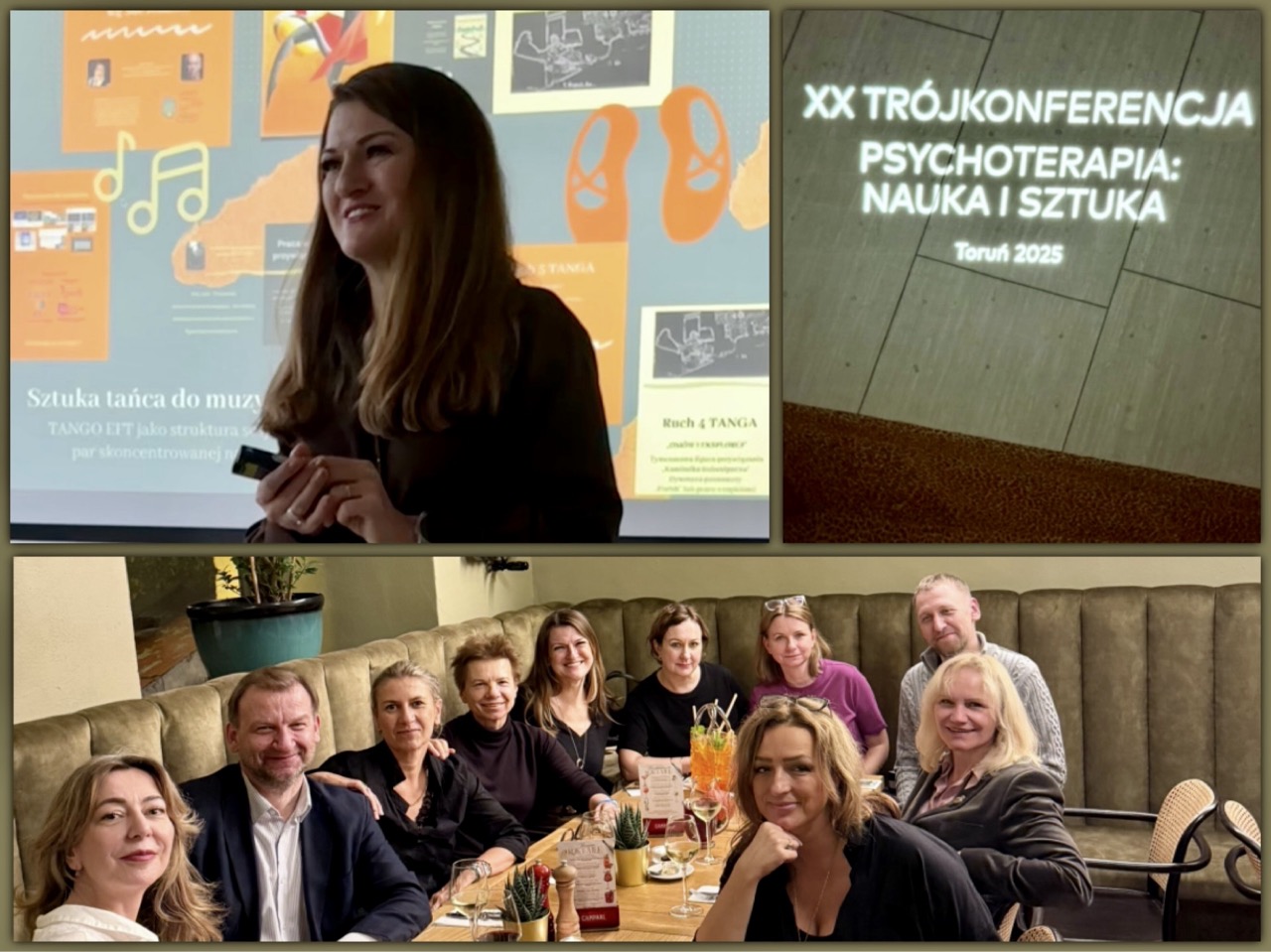
.
We returned from Toruń with our heads full of ideas and our hearts a little fuller as well. This year’s 20th “Trójkonferencja” of Polish psychotherapists was truly dense: from discussions on the scientific status of psychotherapy to encounters with art — which, as it turns out, can also become its own form of therapy.
“Psychotherapy — between science and art” was far from an empty slogan on a poster. It was a theme that kept resonating throughout the plenary sessions, workshops, and endless conversations over coffee.
The word “art” appeared mostly in the context of presence, intuition, human connection — the things that cannot be captured by statistics or closed into a protocol. And yet no one tried to push science out the door: it was always there, right beside us, like a demanding yet caring supervisor.
🎤 Day One — science, love, and the creative tension between them
Arlene Vetere opened the conference with a bold word — “love.” No irony, no quotation marks. She spoke of Agape as both a resource and a task in couple therapy: a force that regulates our bonds and restores movement in relationships. Love without kitsch. It was deeply moving.
Agnieszka Graff took us into the cultural traps that therapy sometimes falls into. She highlighted how therapeutic narratives may unintentionally take over a person’s experience rather than open it — and how calling someone a “female patient” in Polish isn’t just grammar, but recognition of the real world she comes from.
As always, Tomasz Stawiszyński reminded us that: “Psychotherapy will not resolve the conflict between science and spirituality — and perhaps that’s actually a good thing.” His take wasn’t cynical — rather, an invitation to accept the inherent tension within our work. Because psychotherapy happens in between — where neither an fMRI scan result nor a metaphor is enough on its own.
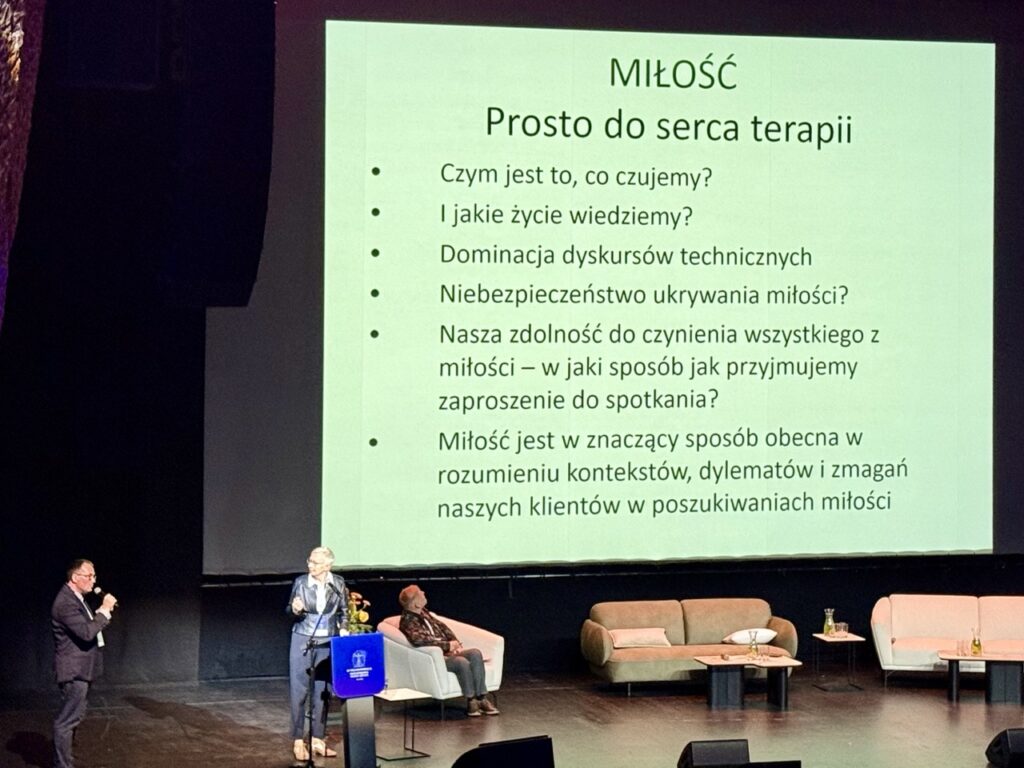
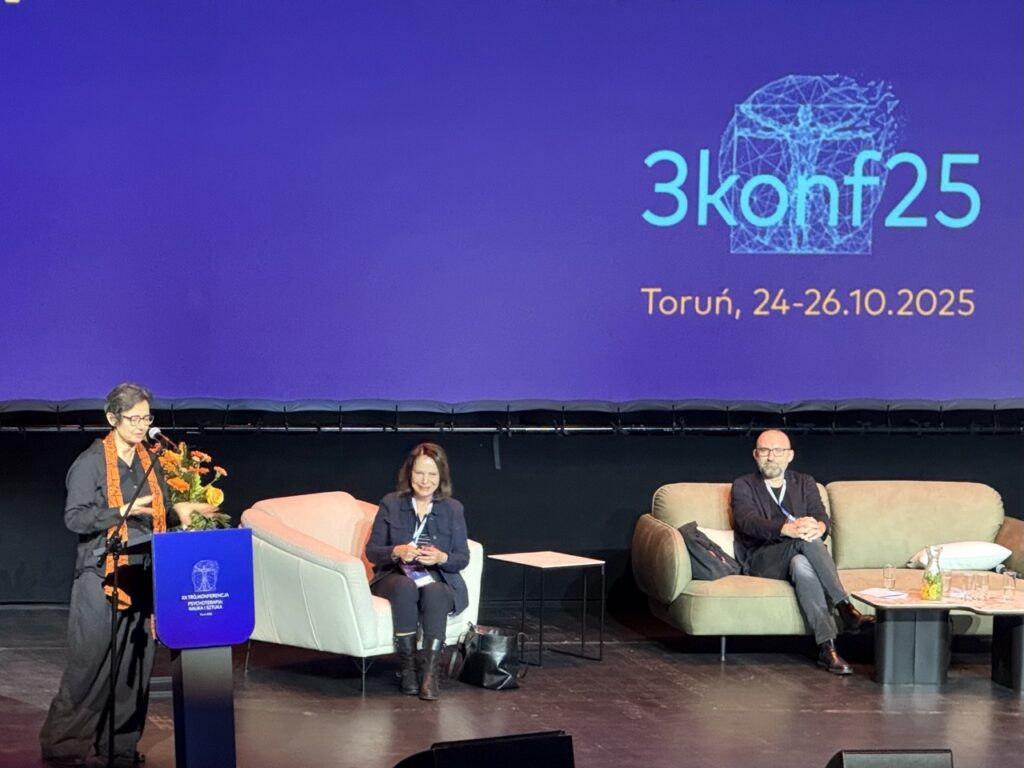
🧩 Day Two — workshops, emotions, and closeness
This day was special to me personally. The Scientific Committee consisted of an impressive group of experts: Bogdan de Barbaro (Chair), Szymon Chrząstowski, Czesław Czabała, Małgorzata Gałecka, Jarosław Gliszczyński, Barbara Józefik, Jacek Maślankowski, Zofia Milska-Wrzosińska, Łukasz Müldner-Nieckowski, Irena Namysłowska, Bogusława Piasecka, Hanna Pinkowska-Zielińska, Bartosz Zalewski.
They selected the workshops.
I was thrilled that one of those chosen was my own – Barbara Sławik about “The art of dancing to the music of emotions: TANGO EFT as a structure for Emotionally Focused Couple Therapy sessions.”
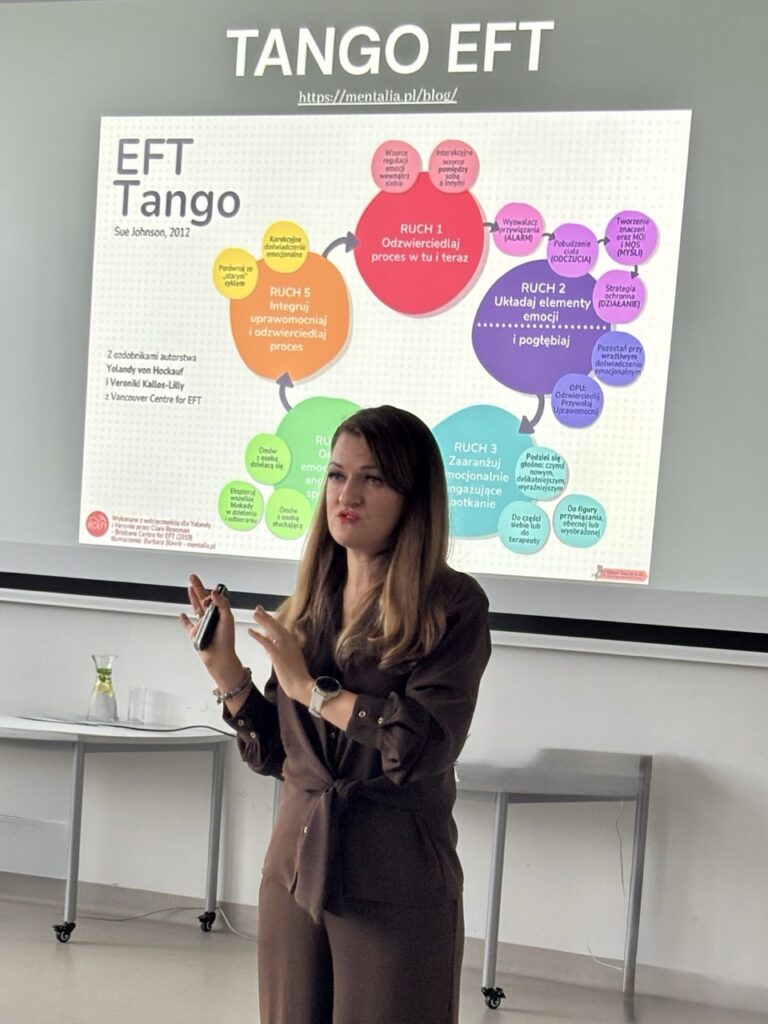
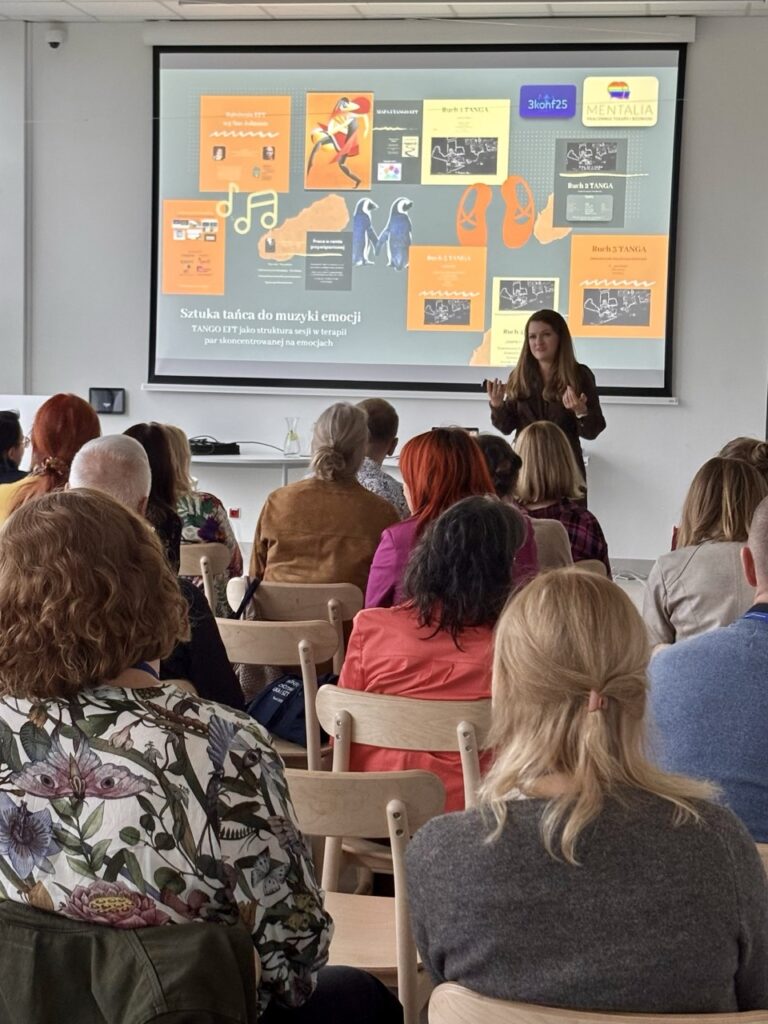
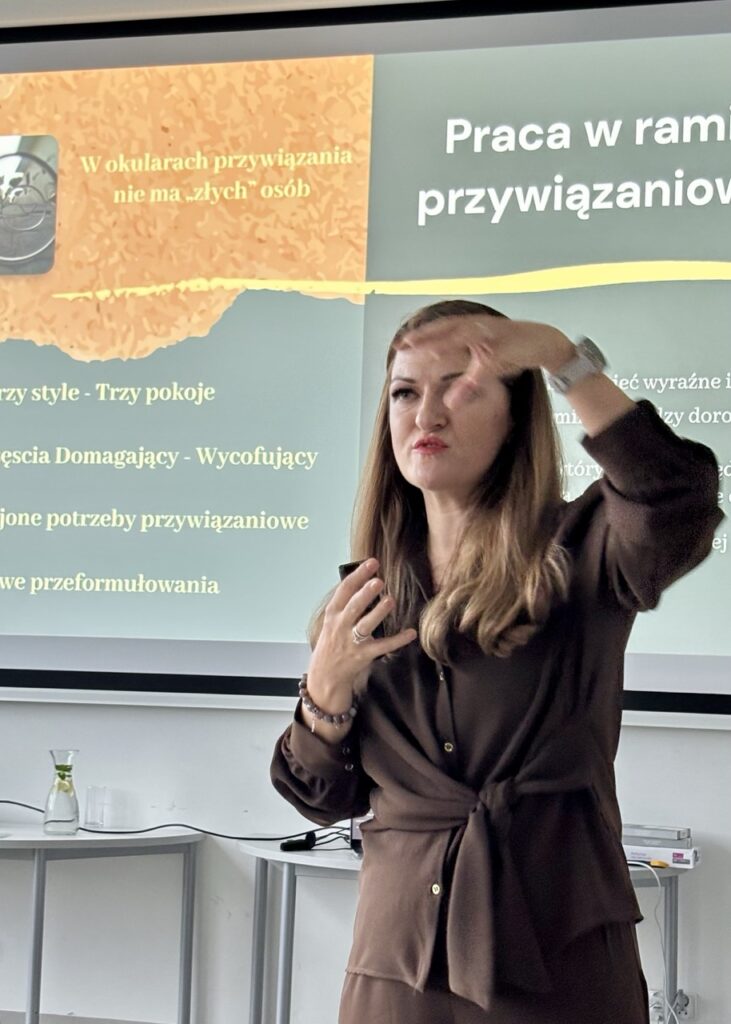
Graduates of the Psychotherapy Training Program at Laboratorium Psychoedukacji were strongly represented this year — and I felt very proud watching my dear colleagues on stage: Agata Cioczek on the myth of therapy as a place of accusation, Cveta Dimitrova on loneliness, epistemic trust, and artificial intelligence, Marcin Hermanowski on therapists on screen, and what media teaches us about psychotherapy, Katarzyna Pokropska & Aneta Mossakowska on the art of attuning to group process in group therapy and Małgorzata Borowiecka on the “third” in relationships and the subtle resonance in couple therapy. Listening to these fantastic specialists, I felt moved — different, authentic, passionate, deeply grounded in science and ethics.
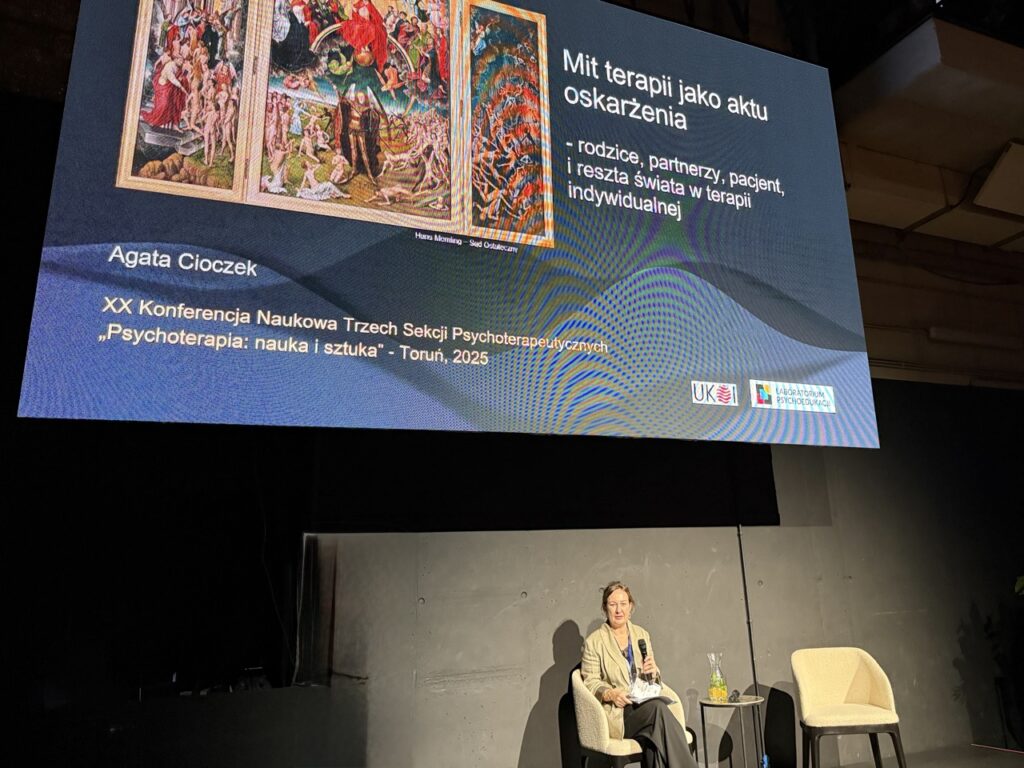
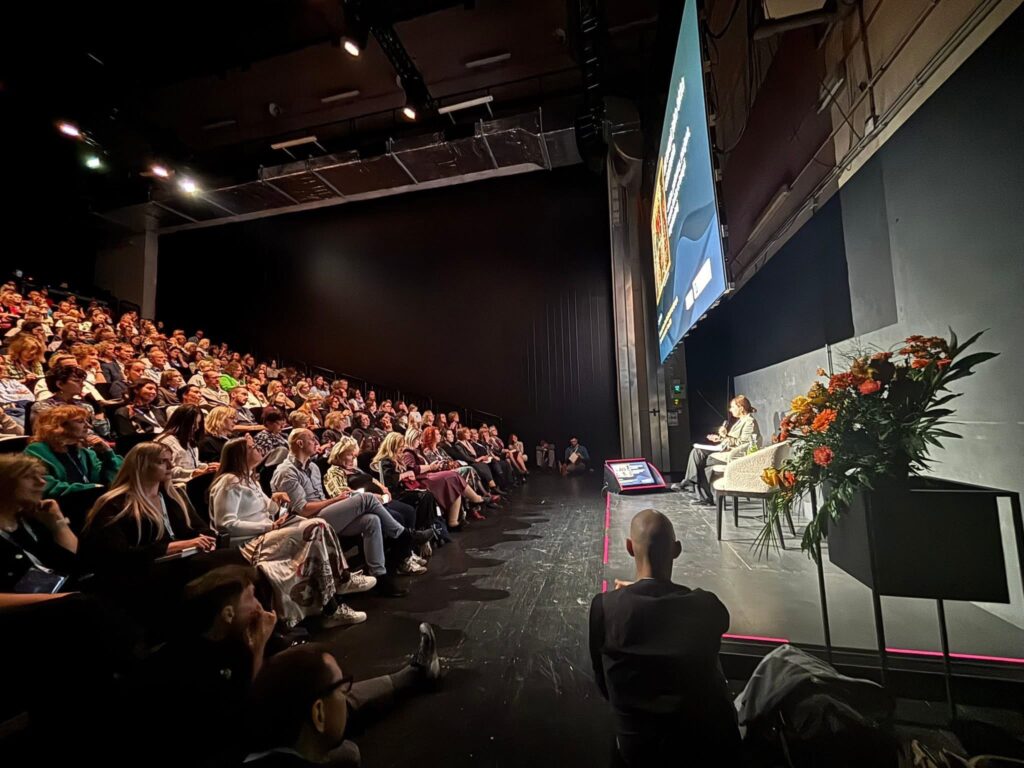
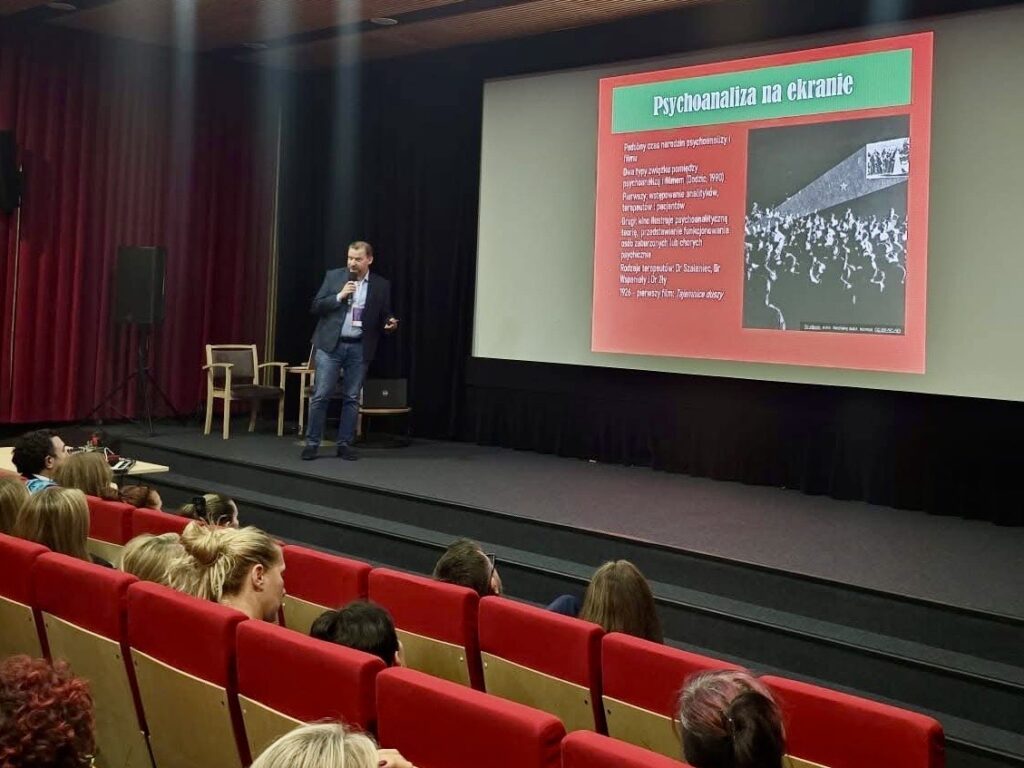
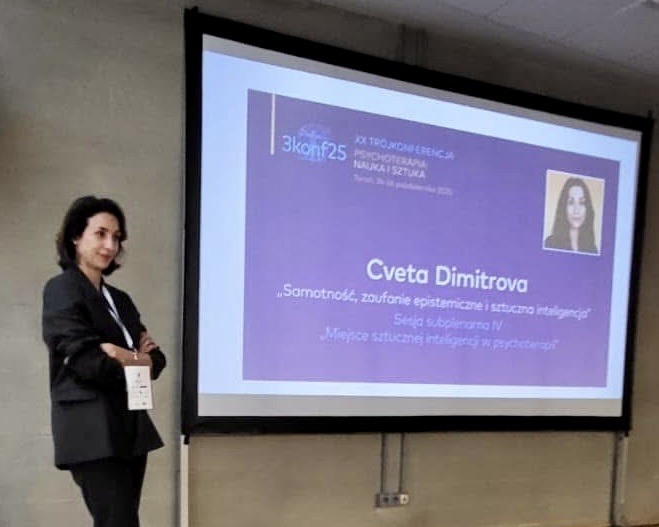
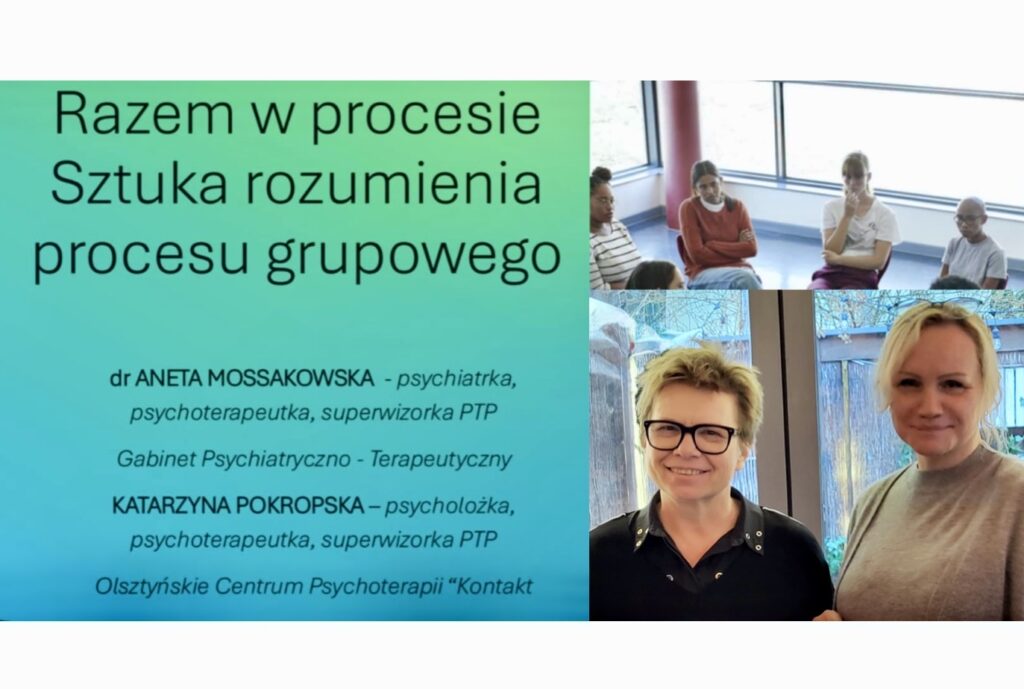
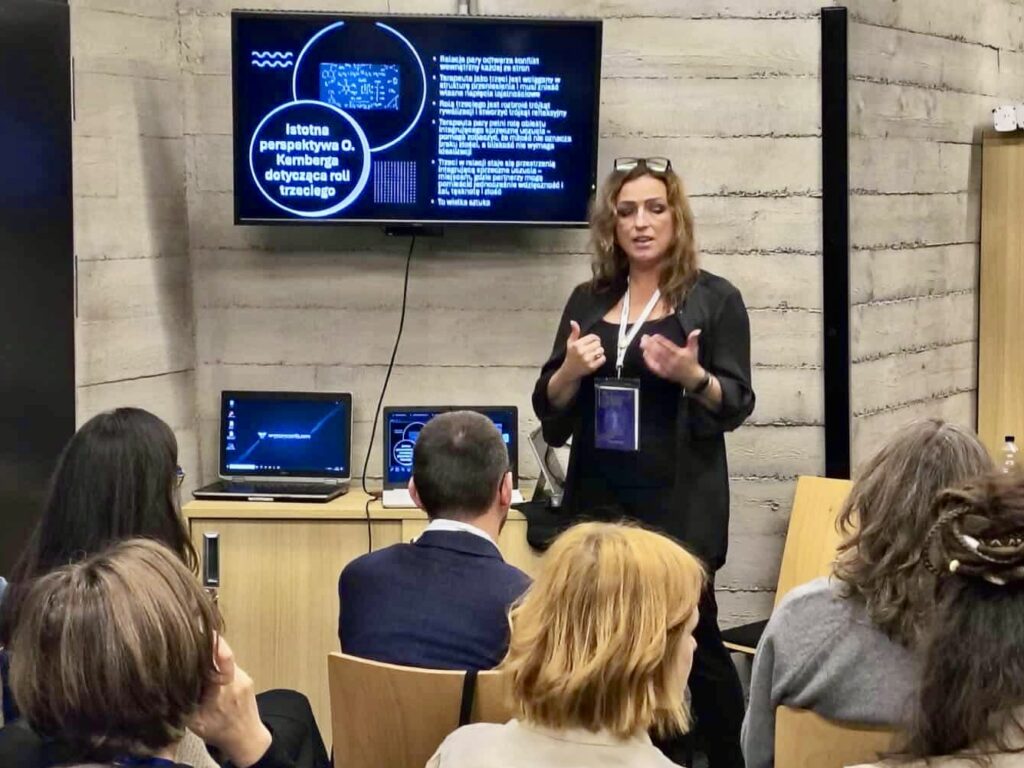
We also had an excellent workshop by Łukasz Müldner-Nieckowski on supporting healthy sexuality in therapy, and the intense but much-needed closing workshop by Hanna Pinkowska-Zielińska & Bartosz Zalewski on perversion in couple therapy.
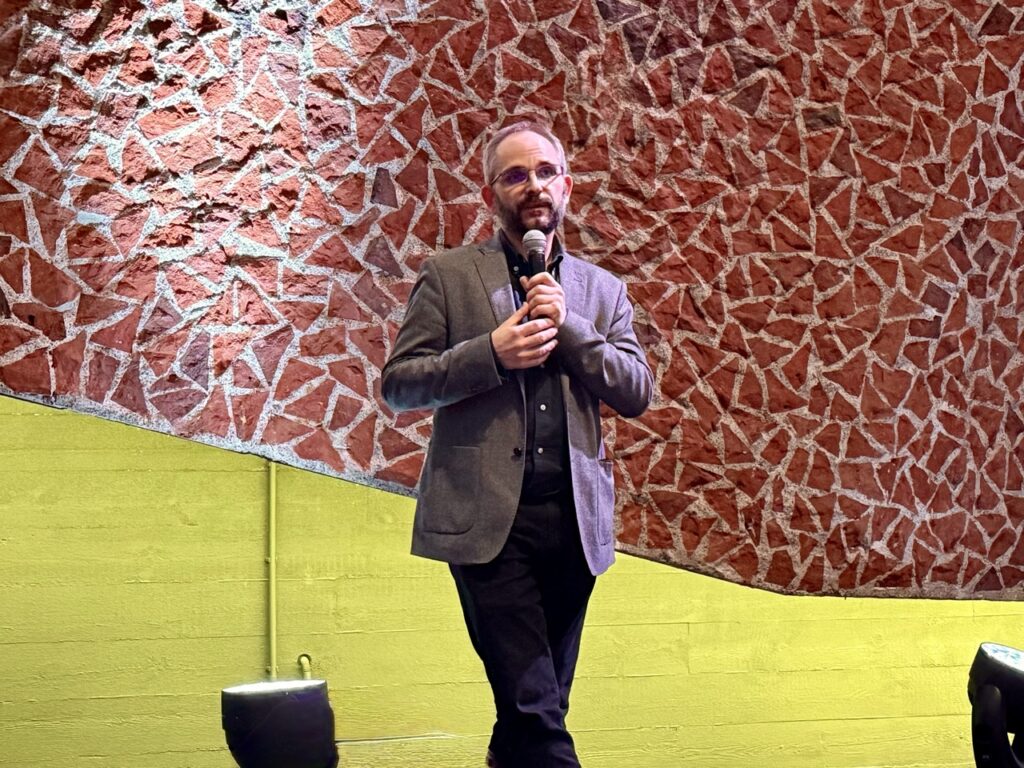
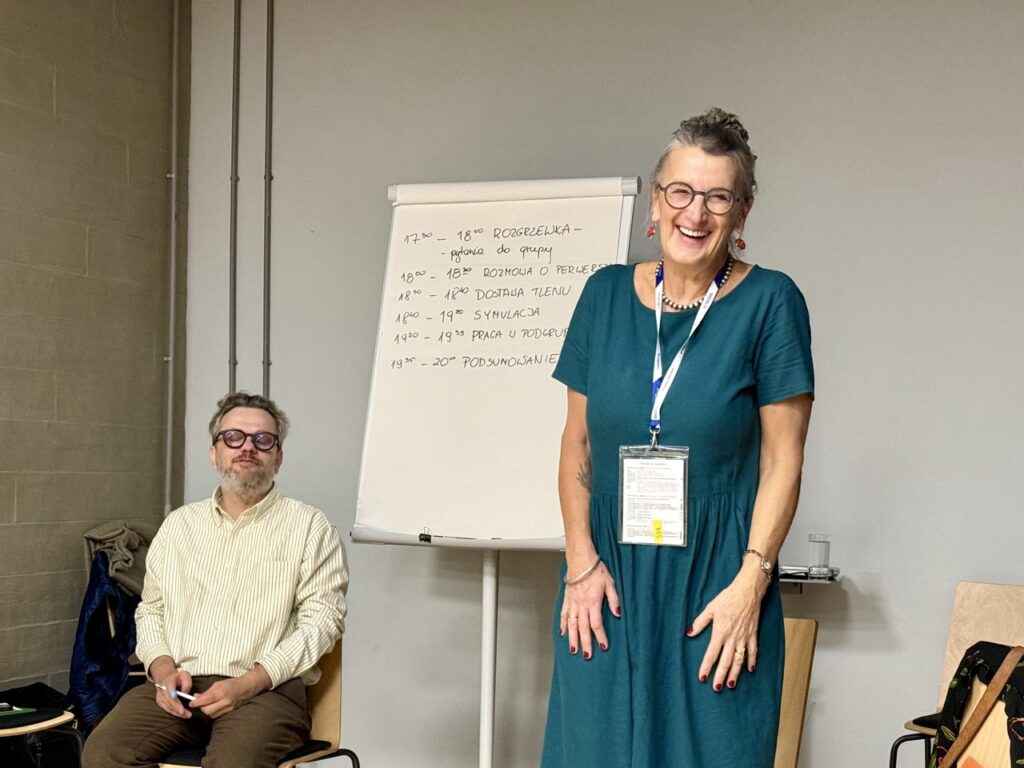
🗣️ Day Three — training and the future of the profession
The final day began with a panel discussion on psychotherapy training, led by Maciej Żurek — a wonderful set of perspectives:
Aldona Czajkowska – training child and adolescent therapists
Joanna Skowrońska – training supervisors
Mariusz Furgał – specifics of training family therapists
Maciej Musiał – the path toward becoming a psychoanalyst
Rafał Bornus – multimodal training
And then — the legislation. The discussion on the upcoming Psychotherapist Profession Act was demanding but crucial. Because the aspiration toward a profession grounded in responsibility and patient safety must meet the reality of political process.
The update was provided by Anna Grzelka (Coordinator of the Working Group) and Dr. Łukasz Müldner-Nieckowski(National Psychotherapy Consultant).
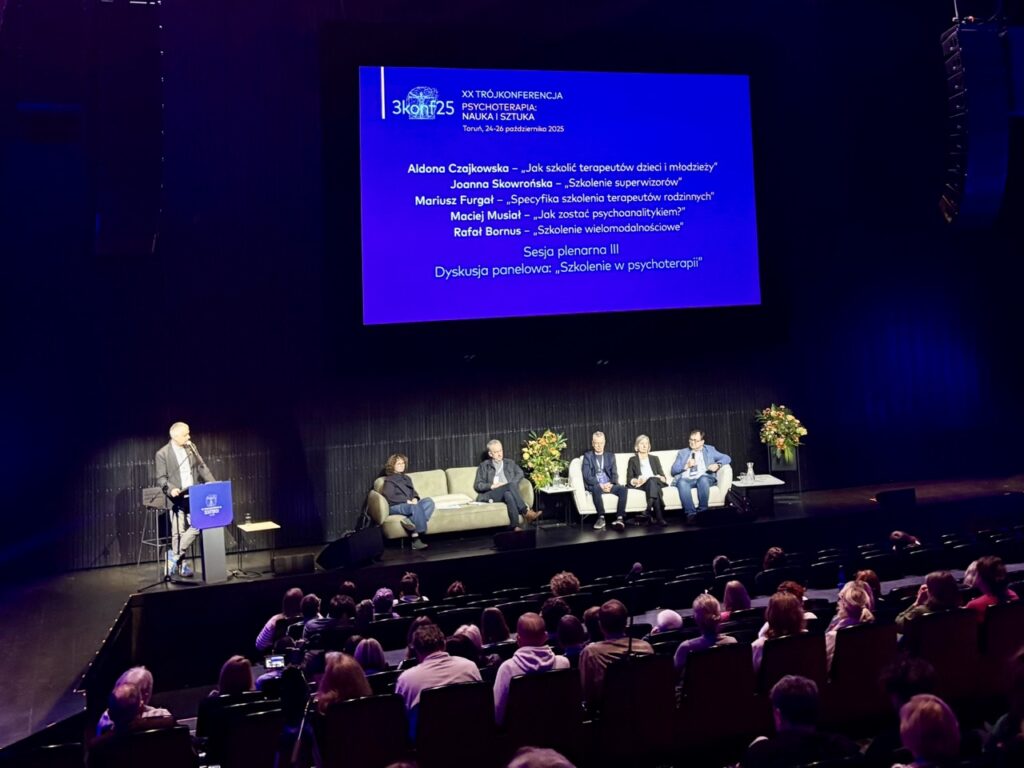
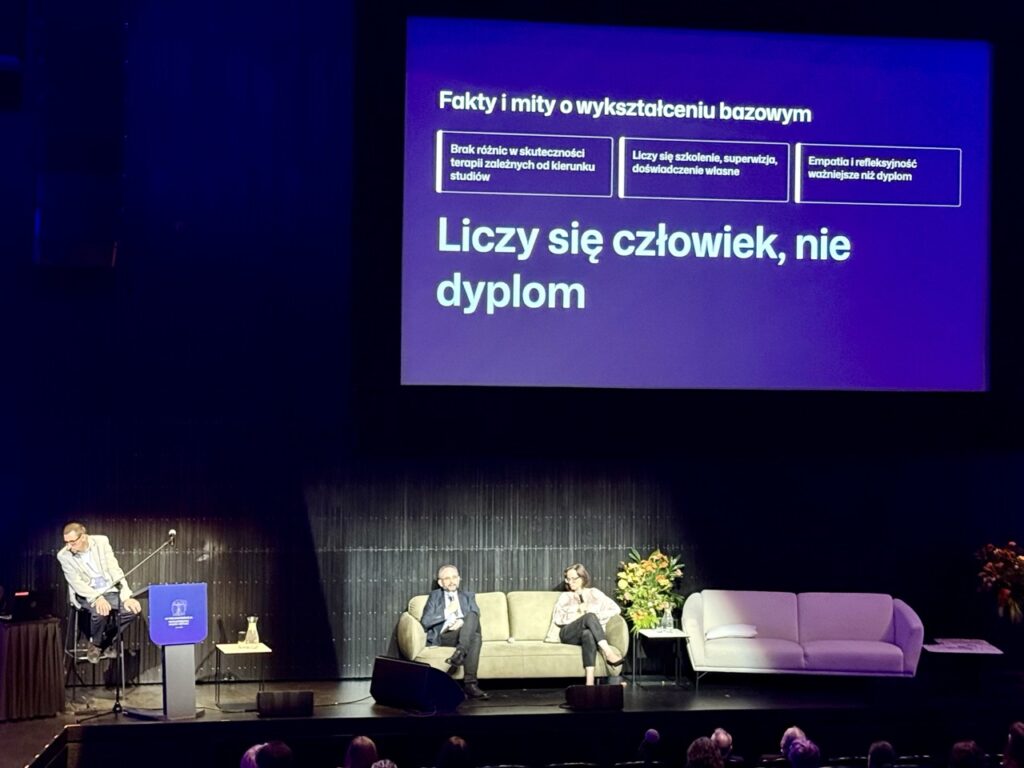
🎥 Behind the scenes
A conference is not only the stage and microphones. It’s also technology charms, sprinting with cables, laughter during coffee breaks — and for me: the first YouTube live of the Working Group I have ever produced 😄
Thank you to everyone who wrote in the chat or afterward that the stream was helpful — it made all the stress worth it!
The recordings are still available to watch 👉 HERE
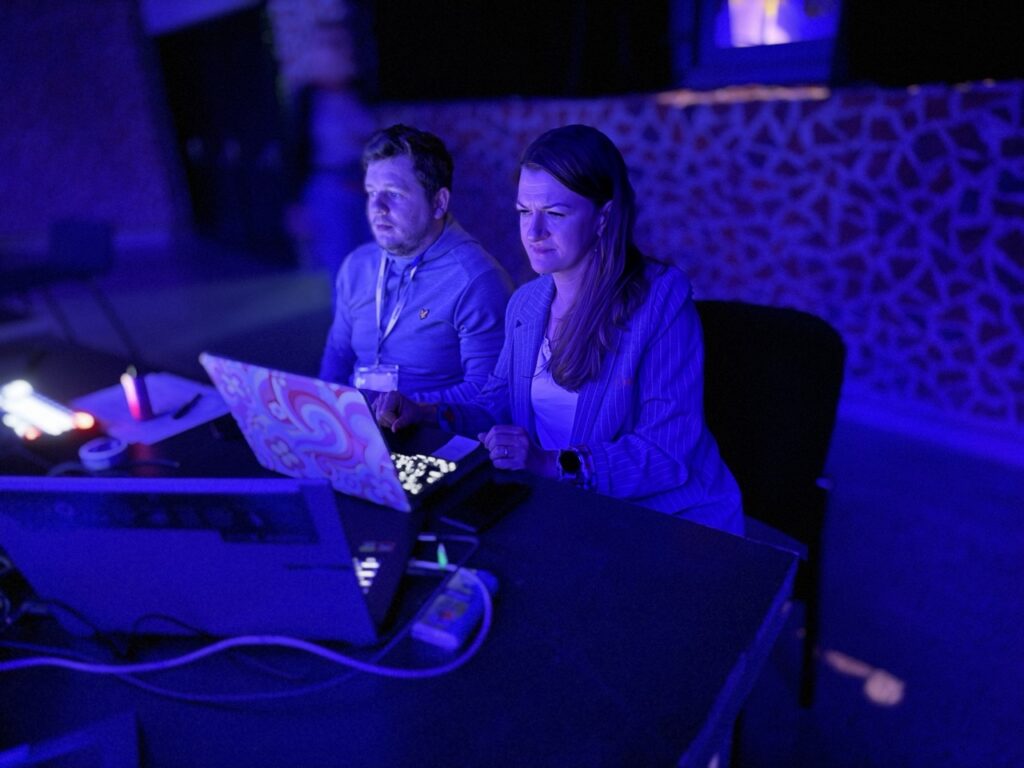
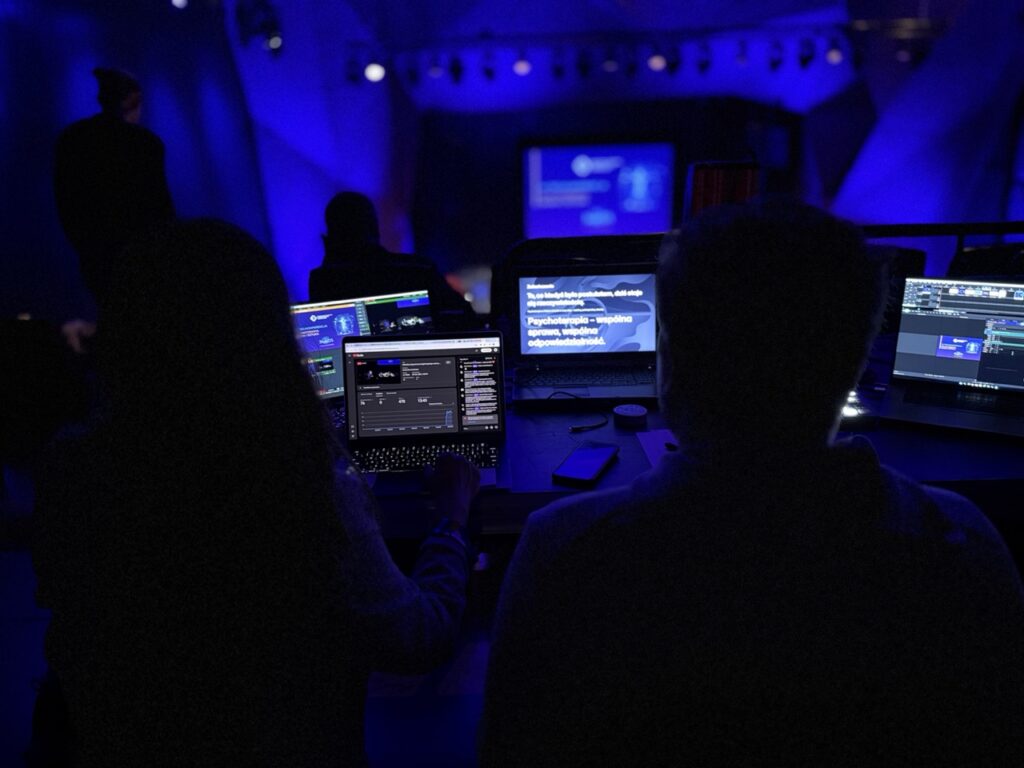
❤️ People who make this meaningful
It moves me that in such a diverse field — psychoanalysis next to CBT, systemic therapy beside EFT, humanistic work beside Gestalt — we can still be together.
Not because we agree on everything.
But because we share the same commitment: the well-being of the people who come to us.
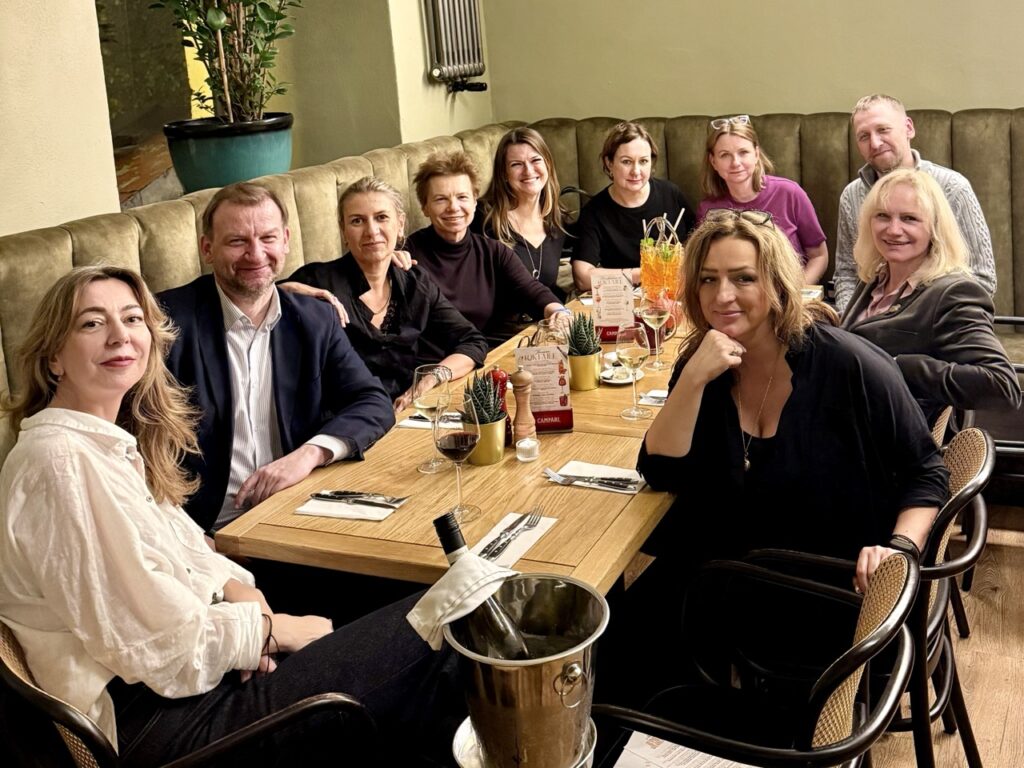
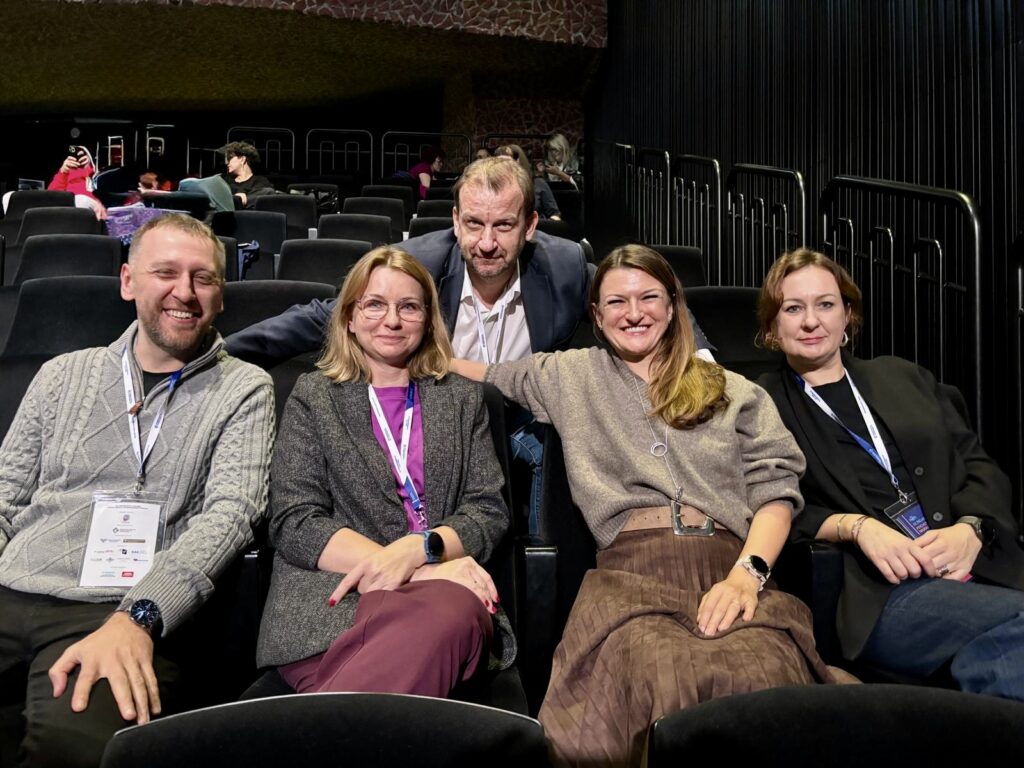
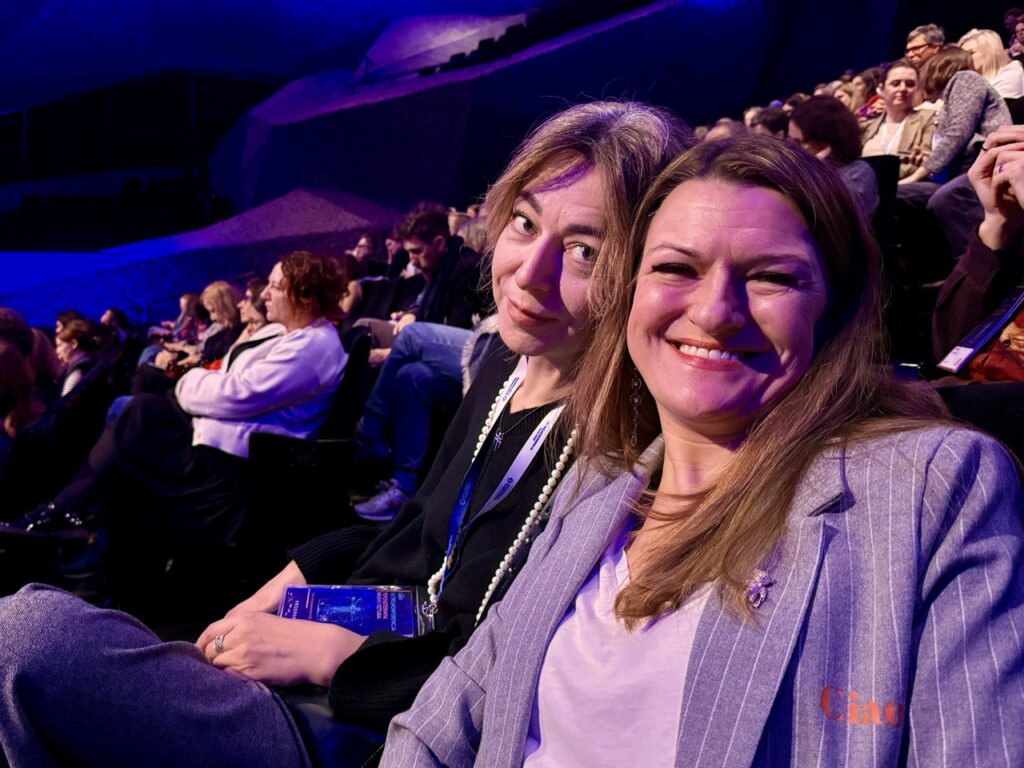
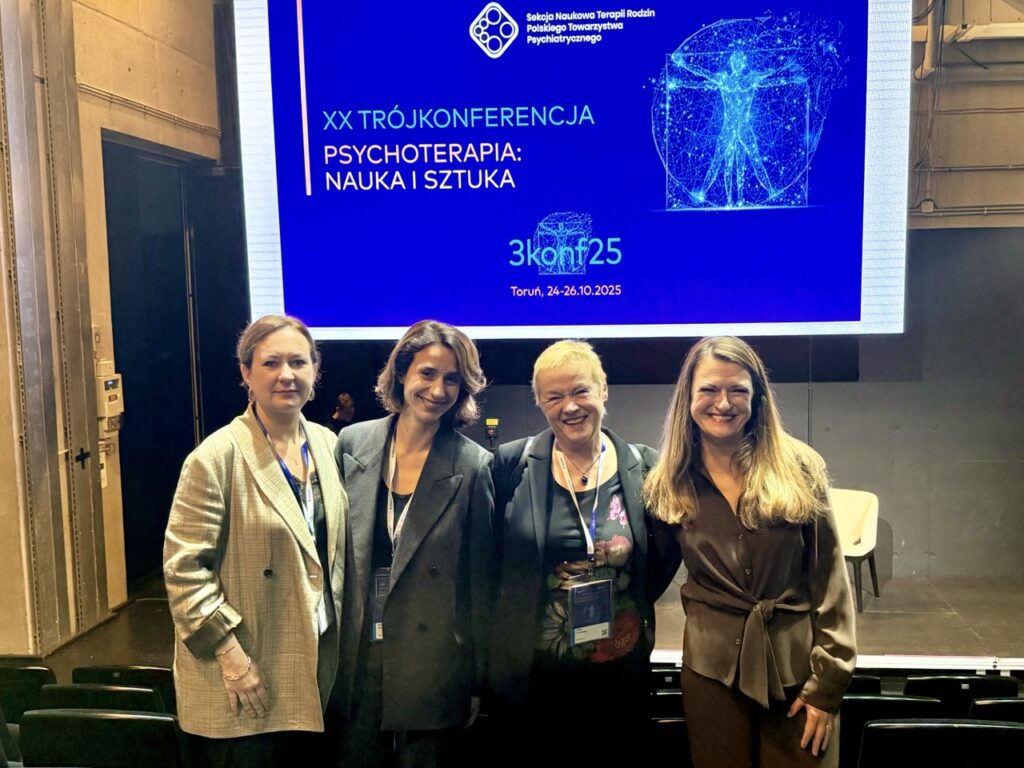
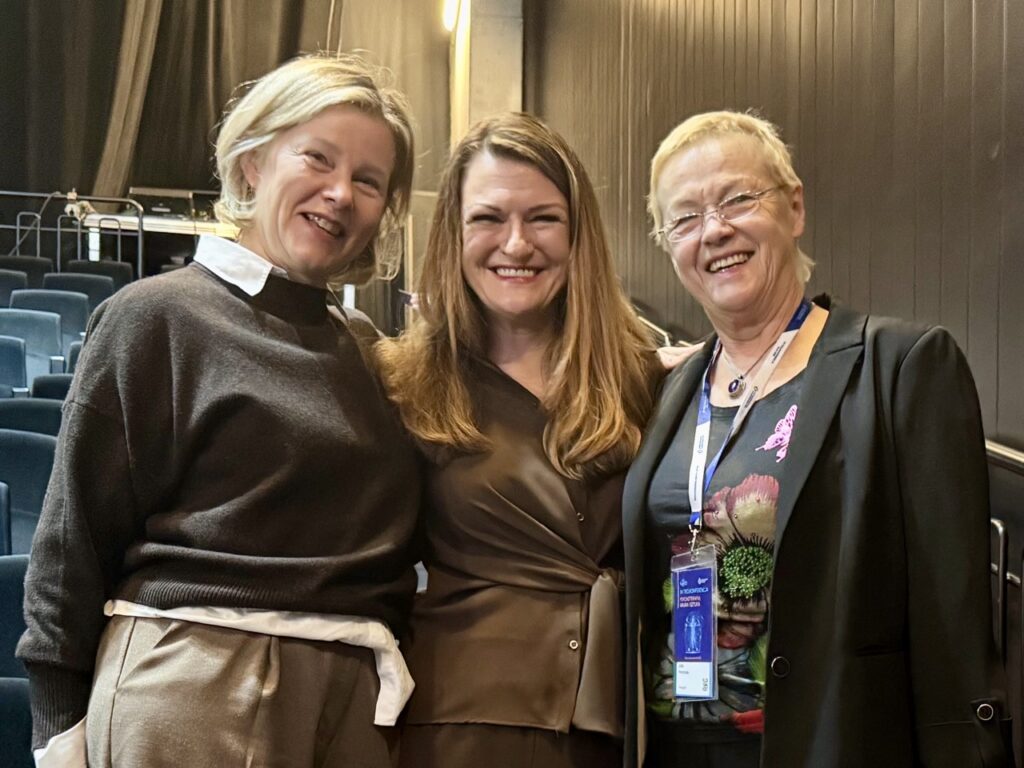
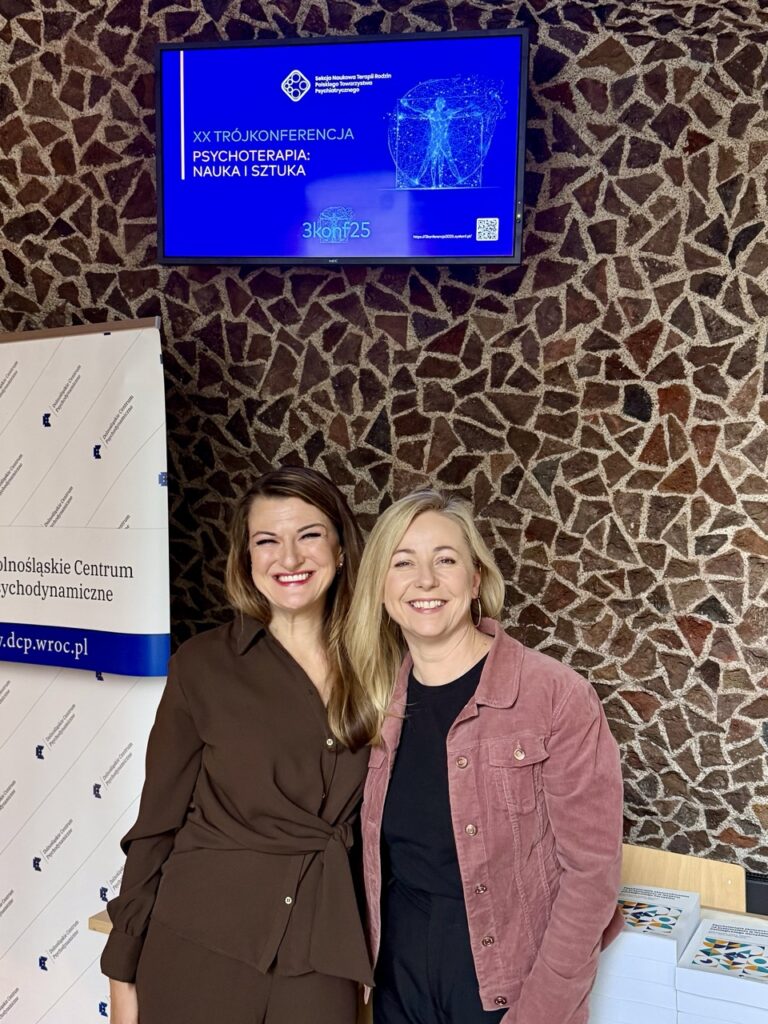
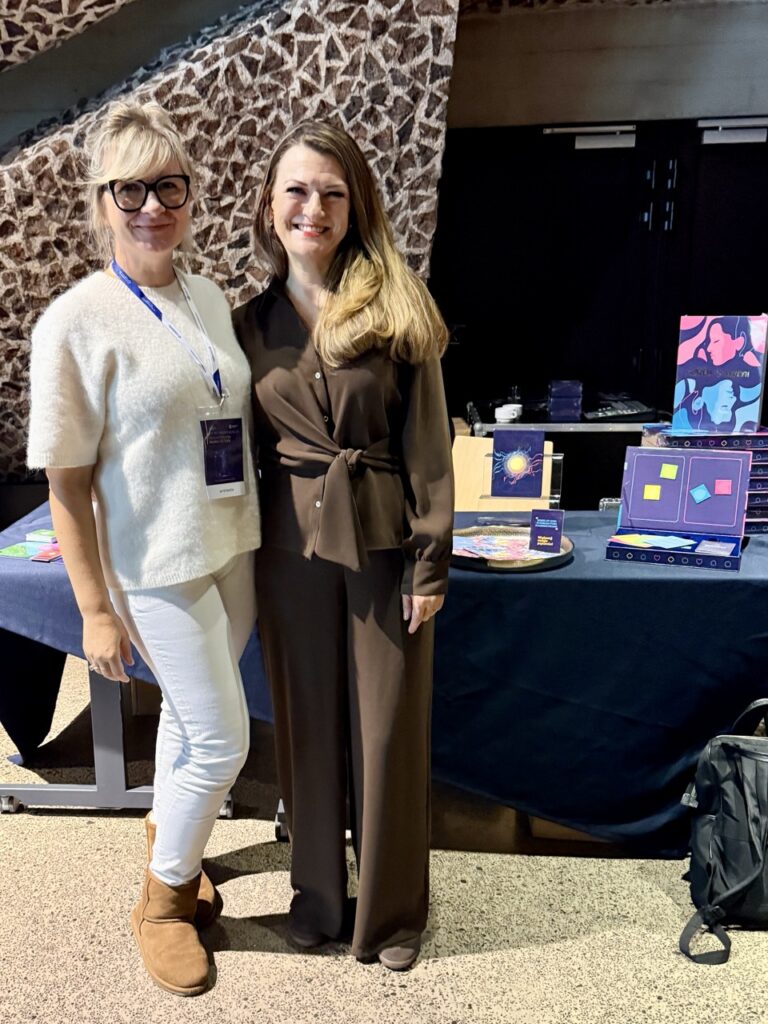
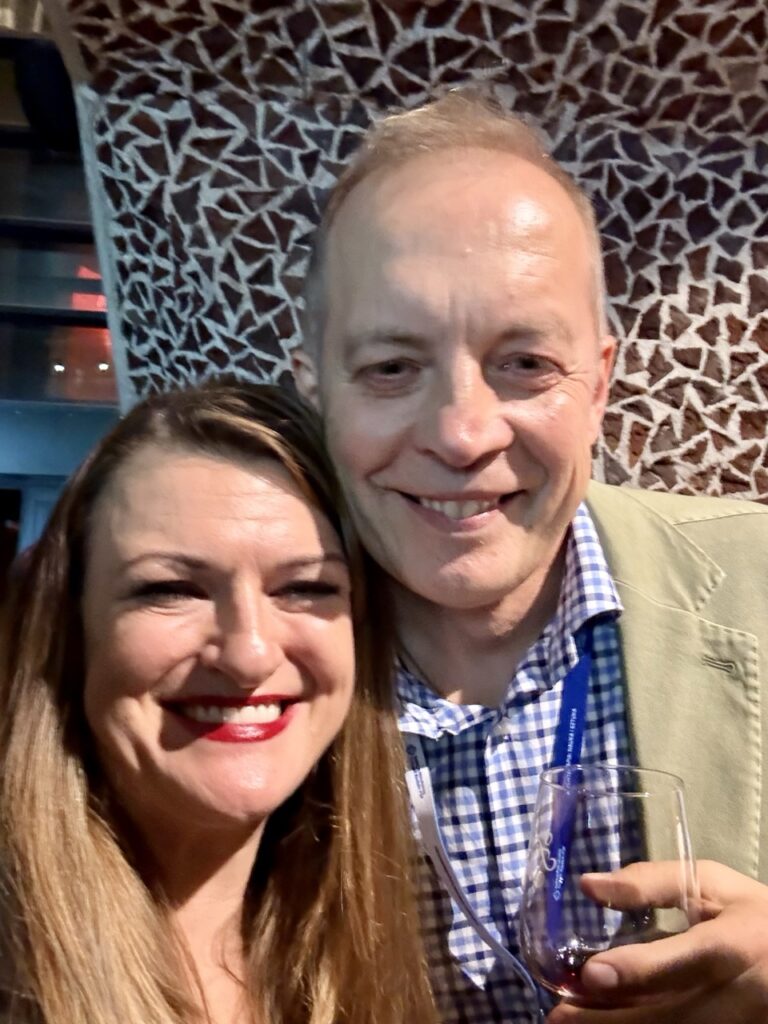
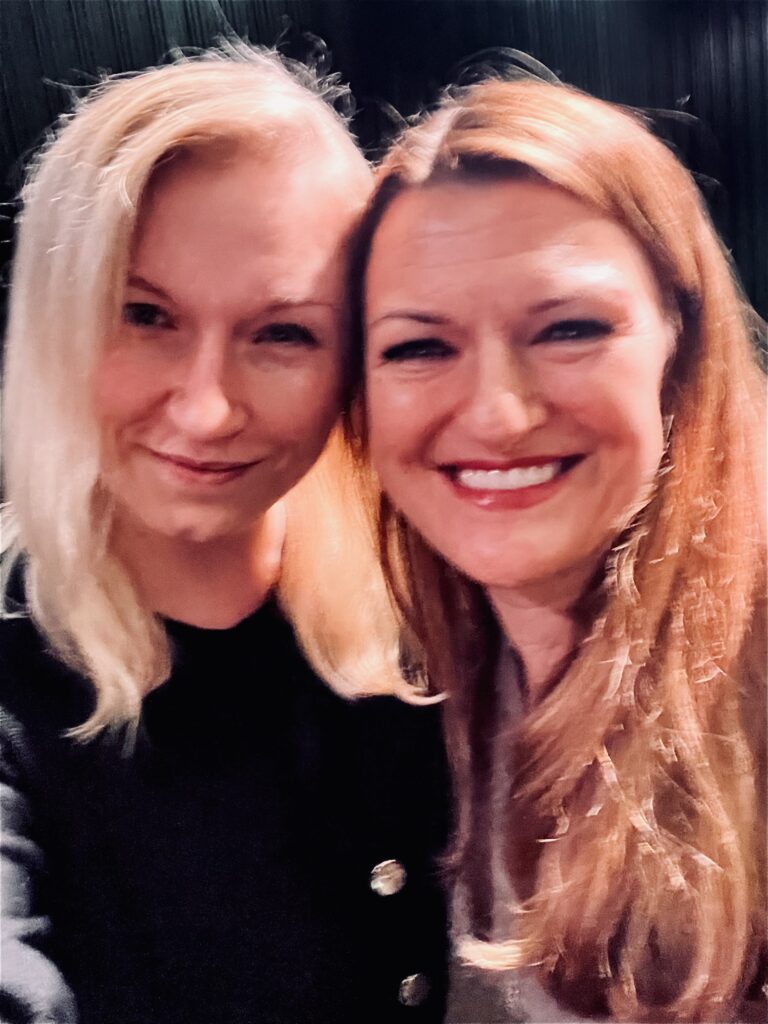
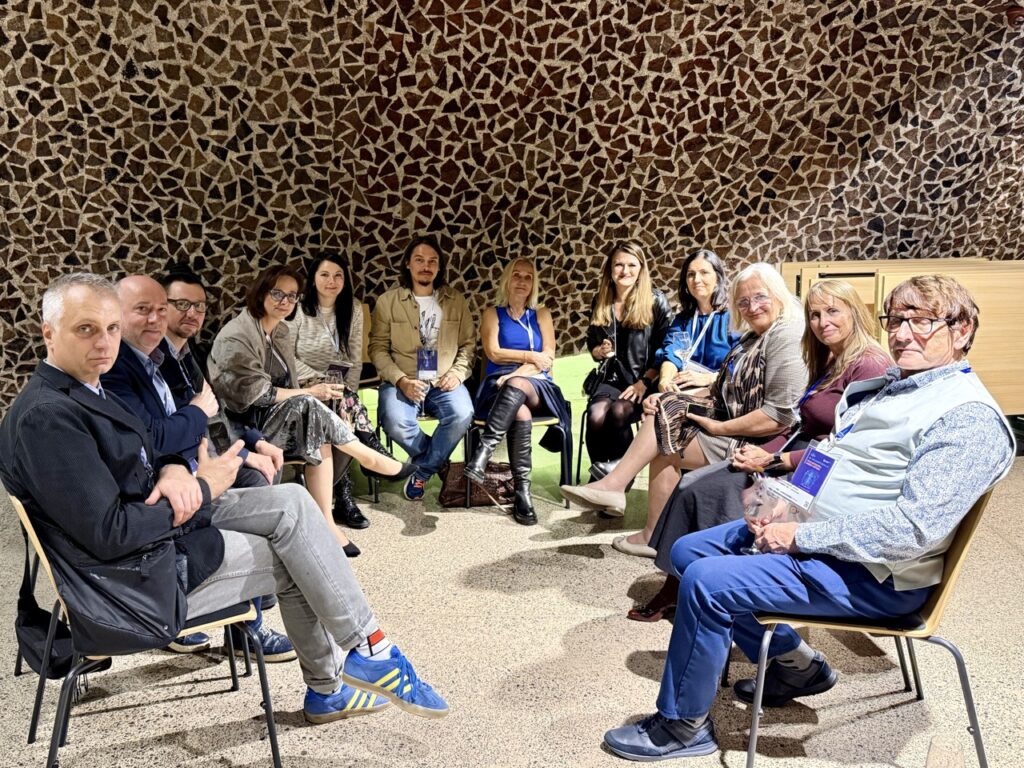
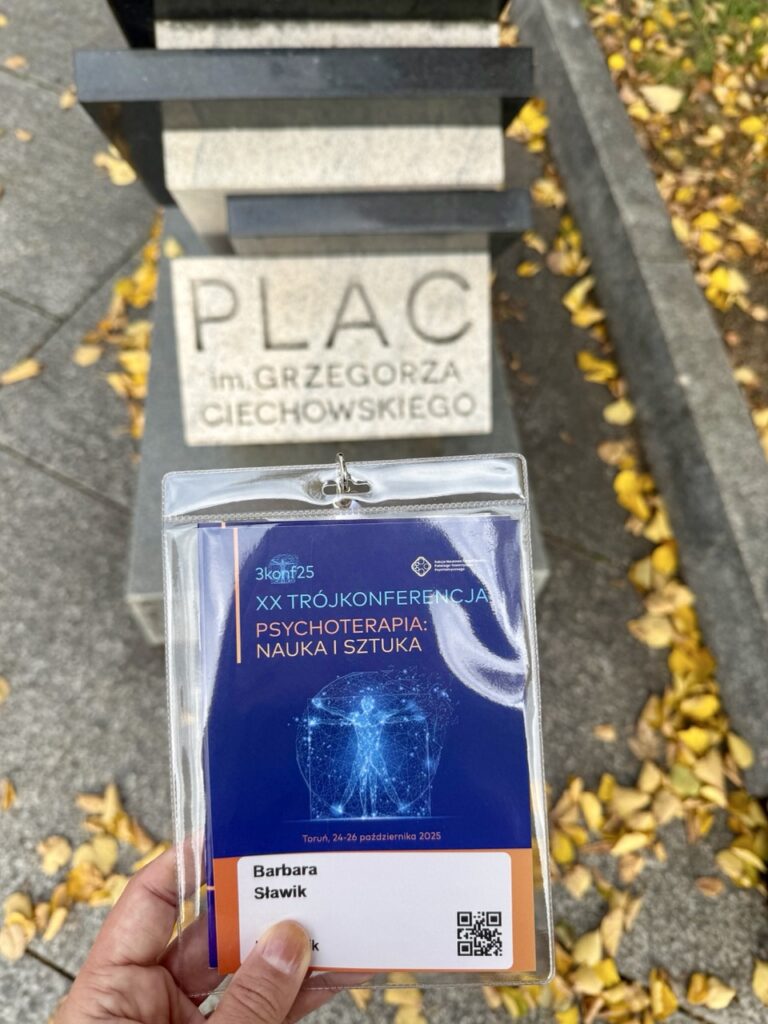
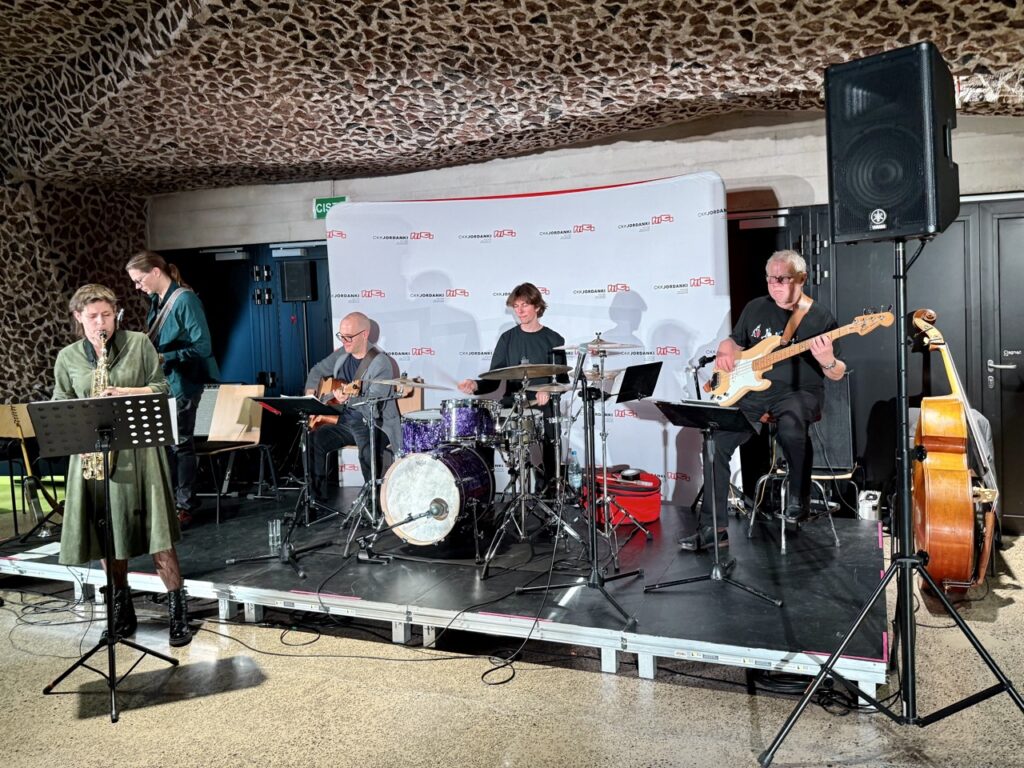
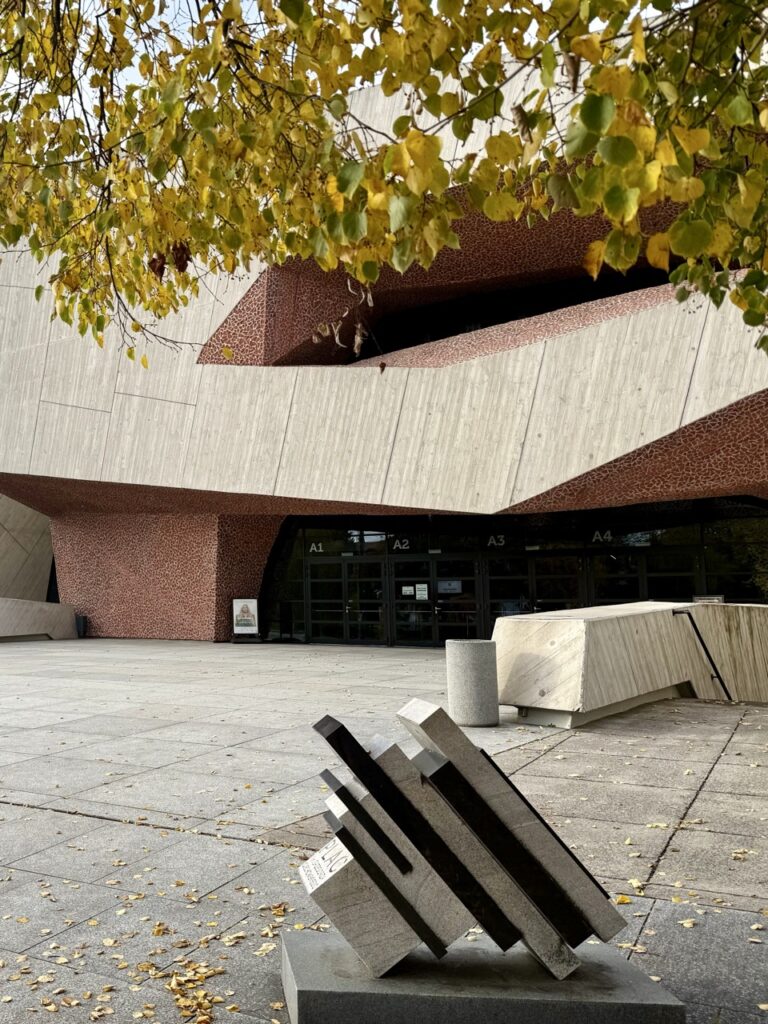
✨ Too much good stuff at once
The conference was so incredibly fascinating that at times it became… a bit frustrating. The program was bursting with parallel sessions — lectures, workshops, discussions, panels, and special events happening all at once. We experienced a real case of an embarrassment of riches: wherever we went, something equally exciting was taking place just behind another door.
We are still soothing our little therapeutic sense of loss, because even though our work is all about being fully attentive in one therapy room at a time… at conferences we would definitely appreciate having the superpower of bilocation 😉
💡 What stays with us?
✔ psychotherapy is neither only a protocol nor only a metaphor
✔ gratitude for those who engage in thoughtful, respectful dialogue
✔ trust that diversity of approaches is a strength
✔ belief that we can build bridges instead of walls
Toruń was beautiful. Autumn light 🍂🍁, good conversations, good thoughts.
We return to our therapy rooms remembering that although our work requires constant scientific learning — the greatest art remains simply to sit with another human being and stay with them in whatever they bring.
ways to help
for therapists
mentalia
mentalia.pl is owned by
„Mental Breathes” Barbara Sławik
ul. Wałbrzyska 48/11
02-739 Warszawa
Privacy Policy
Information clause on processing of personal data


